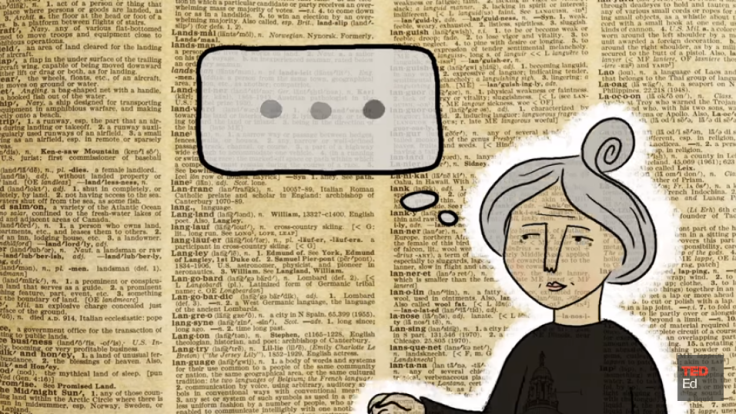What Is Aphasia? Brain Condition Causes Language Impairment For 1 Million Americans

Language is one of the main factors that sets humans apart from the rest of creation, and even those who lack the ability to physically hear or make sounds are still able to achieve sophisticated language tools through signing. Aphasia is one condition that specifically affects an individual’s language abilities, and although it is not well known, there are about 80,000 new cases of the condition diagnoed in the United States every year.
According to a recent TedEd Talk, aphasia is a brain condition that can impair all aspects of communication, from speech and language comprehension to even reading and writing. In most cases, the condition is caused by damage to the left hemisphere of the brain, either due to stroke or injury. The extent of aphasia is largely related to the area of the brain where the damage occurred. For example, a person who damaged a part of their brain called Broca’s area may have problems naming objects, while those with damage to their Wernicke’s area will have trouble with language comprehension.
Another less common form of aphasia is primary progressive aphasia. This is not caused by an accident, but rather is an early sign of dementia. The condition is also far more common than many realize, and according to the Aphasia Hope Foundation, there are over one million people in the U.S. living with some form of aphasia.
Despite language difficulties, those with aphasia have no loss in cognition or intelligence. They simply have trouble expressing their thoughts in language and understanding the language of others. However, speech therapy and patience can often help these individuals regain at least some of the language skills they lost.
Read More:
Language Recovery Aided By Noninvasive Brain Stimulation; May Soon Be Used To Treat Stroke-Related Aphasia: Read Here
Wernicke's Aphasia Patient Demonstrates How Speech Impairment Impacts Comprehension, Not Fluency: Read Here



























